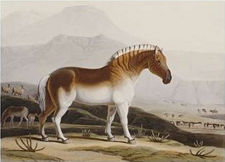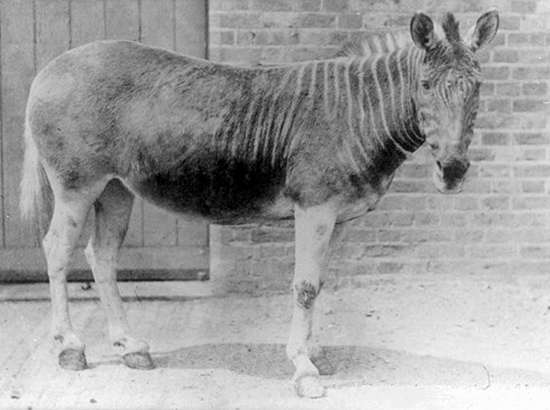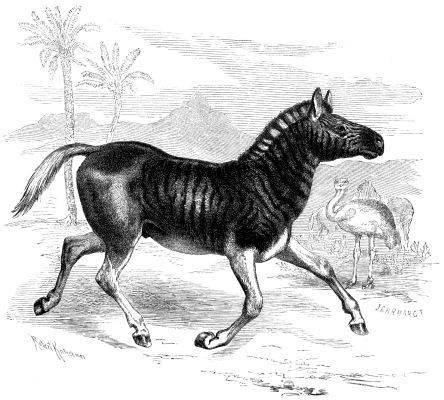 Although we have come to know and love domestic horse, there are quite a few members of the equidae family that are sadly no longer with us.
Although we have come to know and love domestic horse, there are quite a few members of the equidae family that are sadly no longer with us.
Hard Luck Stories
So I thought I’d start sharing some of the cousins that didn’t make the genetic cut (or got in mankind’s way a few times too often). The first one I’d like to share is the Quagga which is a southern subspecies of the Plains Zebras. The name Quagga comes from the Hottentot speaking people of the South African interior & is an imitation of their call (it’s actually used to describe all zebras in the area).

Colorful & Unique
This species is distinguishable from other zebras because they are only striped on their head & neck, while their body is mostly brown in color. Research indicates that their peculiar coat pattern evolved relatively quickly and is thought to be an adaptation to open country.

These animals are thought to come from a population of plains zebras that was isolated during the Pleistocene era, (that’s about 120,000 – 290,000 years ago).

Sadly they were hunted to extinction before anyone realized it and the last of their kind (a mare) died in 1883 in the Amsterdam Zoo.

Bringing the Quagga Back
Currently there are breeding programs in place attempting to bring back this interesting zebra. Although they have come close in coloring, the sad fact is, they will never be able to replicate the genetics 100%.
Learn More
Here are a few resources for those who want to learn more about the Quagga & stay tuned for more posts about extinct equidae.
The Breeding Program: www.quaggaproject.org
Great General Info: Peter Maas
So sad when a horse becomes extinct, But so good when another one is found! Well, that’s what mankind did, and they simply get paidback.
Absolutely fascinating.. Yes definitely sad. Hopefully we learn from our mistakes and learn to respect and preserve what we have today.
Thanks for the post!